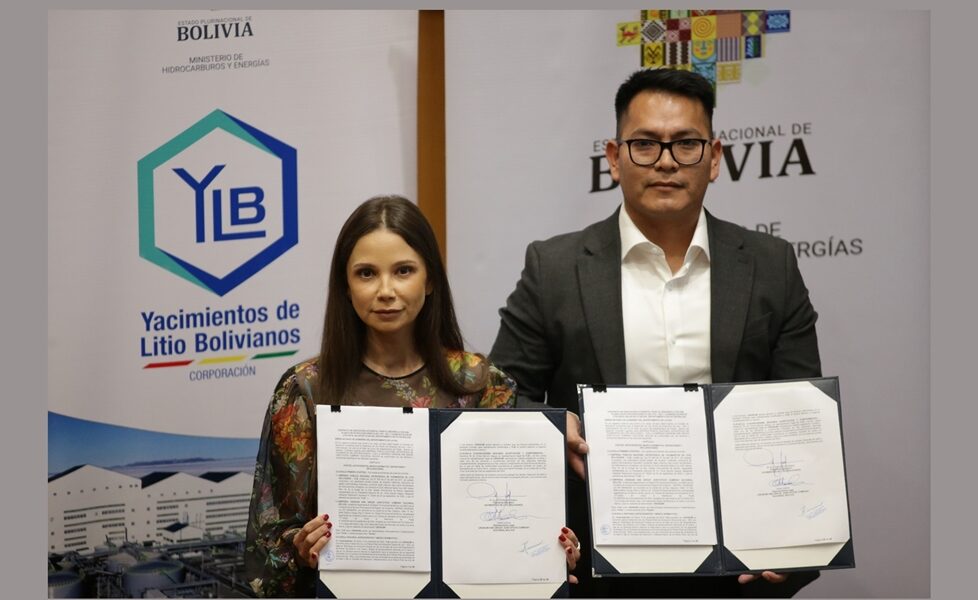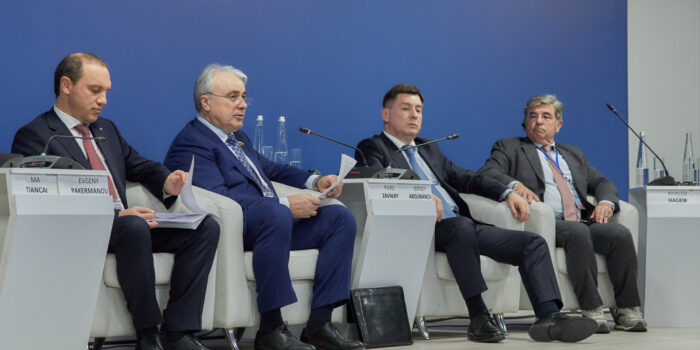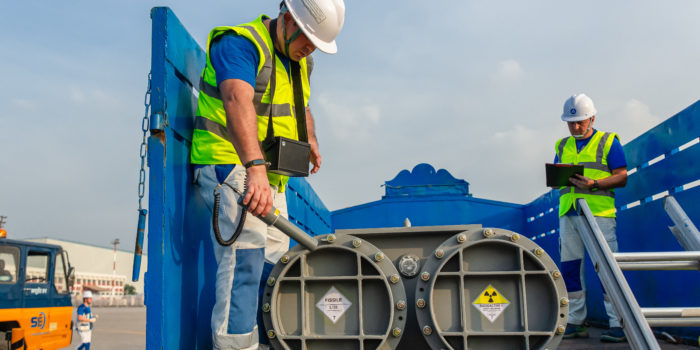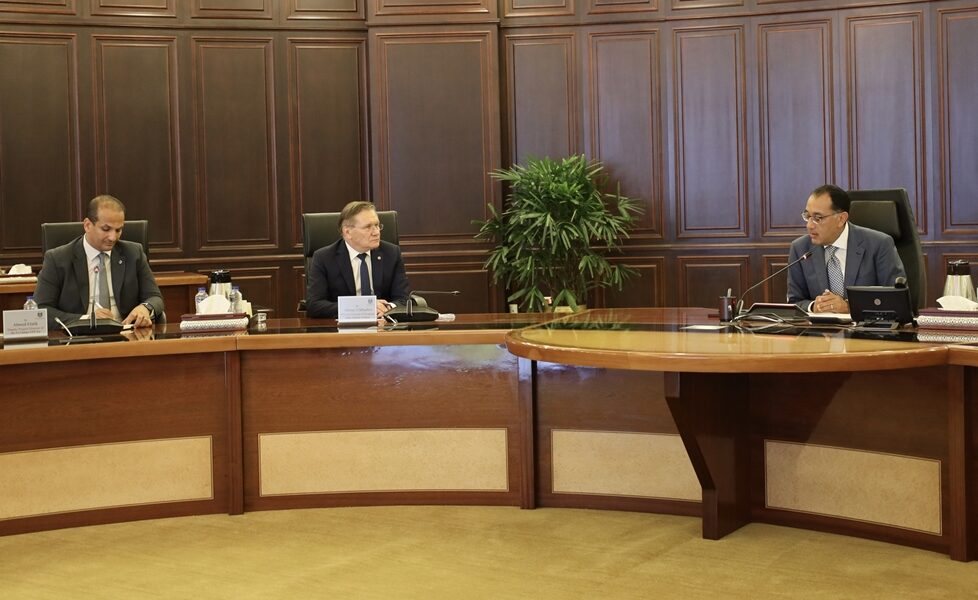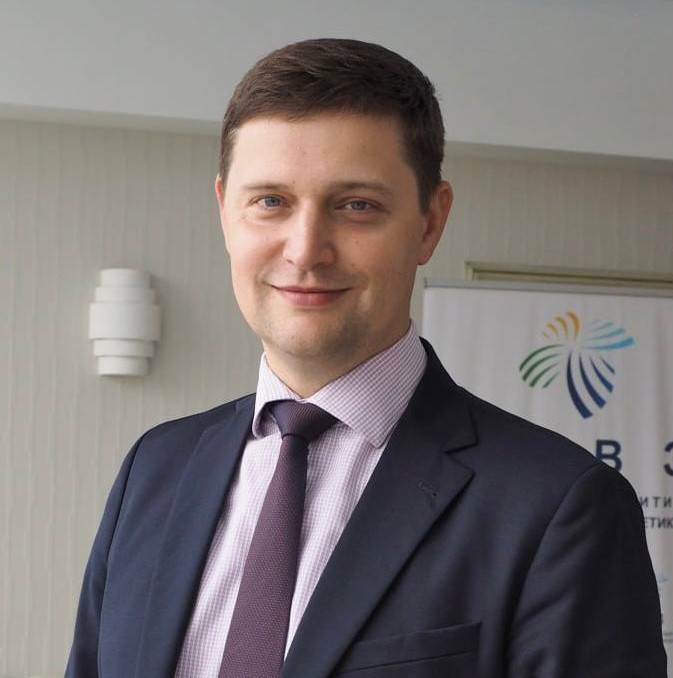September 11, in La Paz, Uranium One Group, JSC (a Rosatom Public Corporation company) and Bolivian public company YLB (Yacimientos de Litio Bolivianos) signed a contract for construction of the lithium carbonate industrial facility on Salar de Uyuni in Potosí Department. The official ceremony was attended by Luis Alberto Arce Catacora, president of the Plurinational State of Bolivia, representatives of ministries, departments and public organization of the country.
The conclusion of the contract has become a major milestone in the implementation of the Russian and Bolivian Lithium Program with the long-range goal to unite the efforts in creating in the country efficient and sustainable sites for production of the marketable lithium products. The longstanding business partnership of the company is built on the sovereign model and mutual respect of the national interests accompanied by the efficient utilization of Bolivian strategic resources.
The new plant will be deployed in the area of the world’s largest lithium-bearing Salar de Uyuni located at the altitude of 3650 meters above the sea level and takes up more than 10.5 thousand square kilometers. The project schedule of the Russian company includes the startup of the production unit in the second half of 2025 with further phased expansion of production capacities finally reaching up to 14 thousand tons of lithium carbonate per annum.
The resource potential of the Salar will be developed using the Russian direct lithium sorption extraction technology which was successfully tested to demonstrate its high performance and safety. The environmental benefits of the Russian technology include no use of aggressive chemicals in the process and the maximum recycling of water flows ensuring preservation of the surrounding ecosystems.

The execution of this contract is the next major step forward on the path of long-term cooperation between Russia and Bolivia. The advanced production based on the high-performance technology of direct lithium extraction will not only provide the growth of Bolivia’s income but will become the foundation for the social and economic development of Potosí region, will facilitate the expansion of the transport and energy infrastructure, formation of associated businesses, training of national human resources, use of the abundant tourism potential related to the nature and culture of the Bolivian Altiplano and will eventually raise the quality of life for the locals.
The signed contract is the obvious case of the developing and strengthening of relations between the nations interested in growing trading and industrial relations with our country on the basis of equal cooperation and mutual respect.
Reference
Today, Rosatom is creating its own lithium stock, chemical processing chain, production of energy storage systems, and is developing the electric propulsion business area which products can have certain export potential.
Relying on the research, technological and production potential of the nuclear industry companies, it is a Rosatom’s objective is to maximize its contribution in achieving the national-size goal to form a successful mass production of electric transport in Russia including the necessary infrastructure and regulatory environment.
Rosatom Group have a potential to produce around 60 % of all e-vehicle components including storage batteries, motors, magnets from rare-earth metal alloys (including raw REE), micro-component systems, polymer and composite materials.
The combined efforts of the Electric Power Division and Automatic Process Controls and Electrical Division will allow to create a network of charging stations based on Russian equipment. Additionally, Rosatom plans to create various services for e-vehicle owners.
Uranium One Group, JSC is the international group of companies which is part of Rosatom State Corporation environment. Today it is one of the world’s largest uranium miners with a diversified portfolio of international assets in Kazakhstan, Tanzania and Namibia. While developing the mineral resource base overseas, Uranium One Group also implements promising non-uranium projects, including in the field of rare metals. The company possesses technologies and knowledge in the area of high-performance extraction of lithium from brines and production of high quality lithium products. Russian direct lithium extraction technology is highly efficient and has a minimal impact on the environment, water balance, and biocenosis. As a socially responsible company, Uranium One maintains the highest environmental, health and personnel safety standards, as well as the long-term development of communities in the operations areas.

